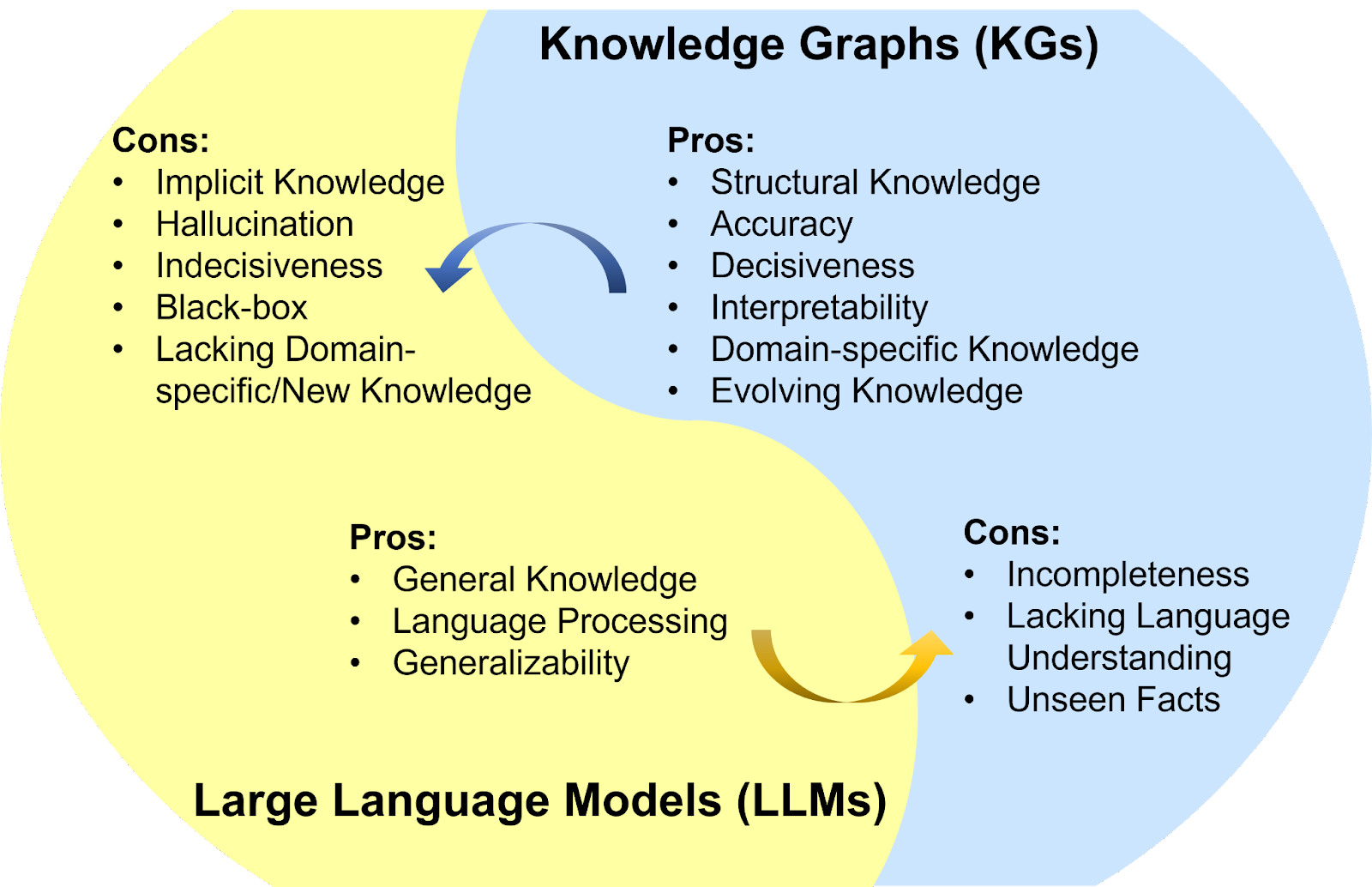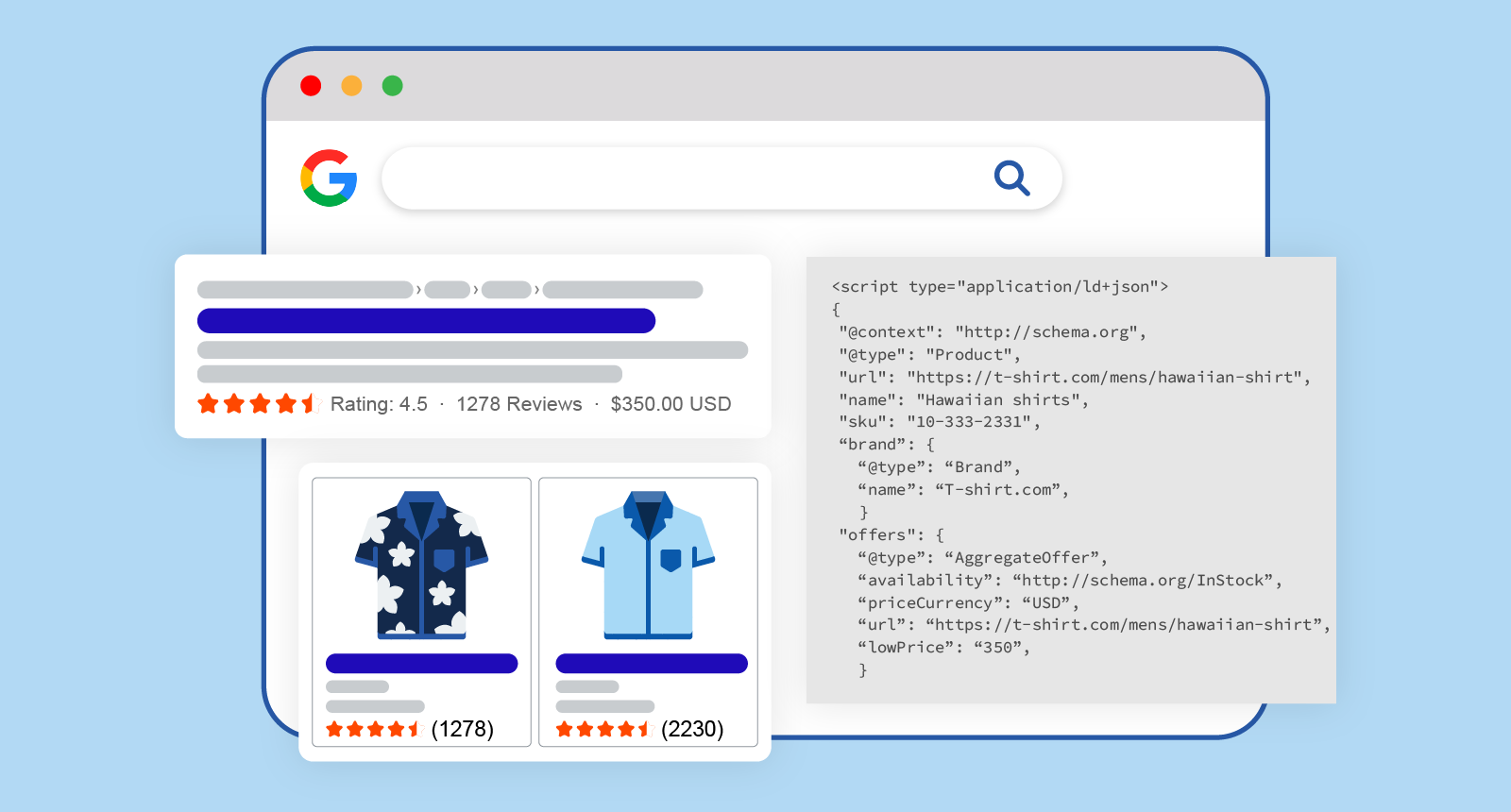Last year was the year of change for search, especially for schema markup.
We saw a significant loss in clicks due to changes made to certain rich results, while simultaneously witnessing the most number of new rich results introduced by Google in a year.
In August, I even asked myself, are rich results dead? Good news – the answer is a resounding no!
Not only are we seeing the rich results landscape continue to evolve, but the value of schema markup is now more than just rich results.
It is a data layer that enables semantic understanding for AI-powered search engines and experiences.
What Is Schema Markup?
Schema markup, also known as structured data, is data added to your website using the descriptive Schema.org vocabulary.
By applying schema markup, content creators can clearly articulate the intent and meaning of their content, enabling search engines to better understand the content on their web pages.
Adding defined required and recommended schema markup to a webpage can also make it eligible for an enhanced search result, known as a rich result.
Rich results include reviews, ratings, course info, events, local business, and more.
 Screenshot from Google, January 2024
Screenshot from Google, January 2024Rich results tend to drive a higher click-through rate from the search engine result page (SERP), resulting in more user engagement.
In 2023, product, review, and FAQ rich results were the top awarded rich results for our customers.
However, we know that the search landscape is unpredictable.
Rich results can come and go at Google’s whim.
Generative AI search engines are disrupting the way we consume information, and the search engines are iterating on the search experience as a result.
This raises the question of whether rich results, the coveted outcome for implementing schema markup, are becoming obsolete.
Are Rich Results Dead?
In the first half of 2023, we saw OpenAI, Bing, and Google introduce their generative AI search engines to the world.
This was a major disruption in the world of search, as these generative AI search engines would present answers in a multi-modal format to users directly in the SERP, giving answers in the search engine.
This was a similar experience to zero-click searches in 2020 but on an even bigger stage. It was clear that big changes were coming.
Then, on August 8, 2023, Google announced that it would be reducing the frequency of FAQ rich results being displayed on the SERP and deprecating HowTo rich results entirely.
FAQ rich results would now be exclusively available for “well-known, authoritative government and health websites.”
Many organizations that previously leveraged FAQ rich results to stand out on the SERP were no longer awarded these rich results. This included several reputable healthcare organizations.
Then, on September 14, 2023, all FAQ rich results were gone from the SERP.
Prior to this change, FAQ rich results were one of the most popular rich results because they enhanced visibility for any content type content and also delighted users with answers directly in the SERP.
Many of the other rich results had specific content requirements (reviews, ratings, video, etc), making them less versatile than FAQ.
Without FAQ and HowTo rich results, the types of content eligible for rich results were greatly reduced. Was this the beginning of the end for rich results?
Don’t Worry; Rich Results Are Not Dead
Google answered the question of whether rich results are dead in October 2023, when it released a new episode of Google Search News.
In the episode, John Mueller stated that new rich results would be added while others may disappear over time.
Staying true to its word, in the last quarter of 2023, Google introduced six new rich results – the most it has ever released in a year.
- Oct 16: Added Vehicle Listing structured data documentation.
- Nov 15: Added Course Info structured data documentation.
- Nov 27: Added profile page structured data documentation, discussion forum structured data documentation, and expanded recommendations for Q&A page structured data documentation.
- Nov 29: Add new Organization documentation, which merges the Logo documentation and includes more organizational information (such as contact info, legal name, and business identifiers).
- Dec 4: Added Vacation Rental structured data documentation
What can we learn from these new rich results?
First, they are becoming very industry-specific.
Of the six new rich results released in 2023, only two were ‘general’ rich results like FAQ rich results that organizations leverage.
Second, many of the rich results are complimenting previous data feeds.
This may be the start of Google’s more programmatic consumption of structured data, as mentioned by Ryan Levering in April 2022’s Search Off the Record podcast.
Why Are Rich Results & Schema Markup Important To Google And Bing?
Rich results improve a user’s search experience. However, there is a bigger reason why Google continues to invest in them.
Schema Markup Provides Context About Your Content
As John Mueller pointed out in his Search Update, schema markup is machine-readable code you can add to your web pages to help search engines better understand your content.
Google uses large language models to understand the content on a page, but LLMs are prone to hallucinations and misinterpretations.
Furthermore, the things or entities mentioned in your content can be ambiguous.
For example, the word “Apple” is both a fruit and a brand. Without additional context, it can be hard for the LLM to disambiguate which Apple you’re referring to.
Schema markup can overcome this by providing additional information and context about the entities mentioned in your content.
This makes the content easier to understand and increases the machine’s confidence in the data, allowing it to provide more accurate and relevant search results.
When you implement schema markup on a page, you aren’t just defining the entities on that page. You’re also describing their relationship to other entities on your site and on the web.
This interconnected web of information about your website forms a structured content knowledge graph.
Schema Markup Allows You To Control How Your Content Is Understood
Your content knowledge graph enables search engines to understand and infer new knowledge about your organization.
Generative AI search engines like Gemini, SGE, and ChatGPT benefit significantly from a well-constructed knowledge graph, as shown in the image below.
 Image from arxiv.org, January 2024
Image from arxiv.org, January 2024By providing factual and connected schema markup in a graph, your website has now become a data layer for machines to consume, giving you a control point on how you want your data understood and enabling them to make accurate inferences about your brand.
Start Maximizing The Semantic Value of Schema Markup
Rich results are not dead. In fact, they have never been more alive!
Google uses the schema markup on your site to understand your content while helping you stand out in the SERP, creating an engaging search experience for your consumers.
Google will continue releasing new rich results in exchange for your data because their AI-powered search experiences depend on access to your data to deliver accurate, relevant answers.
However, the value of schema markup extends far beyond achieving rich results.
By implementing robust, connected schema markup, you are essentially creating a data layer that allows you to control how search engines and machines consume and understand your content.
That way, the LLMs that power search experiences like SGE, ChatGPT, Gemini, and the new Bing can make accurate inferences about your content, preparing your organization for future search experiences.
One could argue that schema markup has never been more strategic for companies aiming to maintain a control point in preparation for AI.
More resources:
- Local SEO Schema: A Complete Guide To Local Markup & Rich Results
- Schema Markup: Is It A Google Ranking Factor?
- How Search Engines Work
Featured Image: Gracia Chua/Schema App





